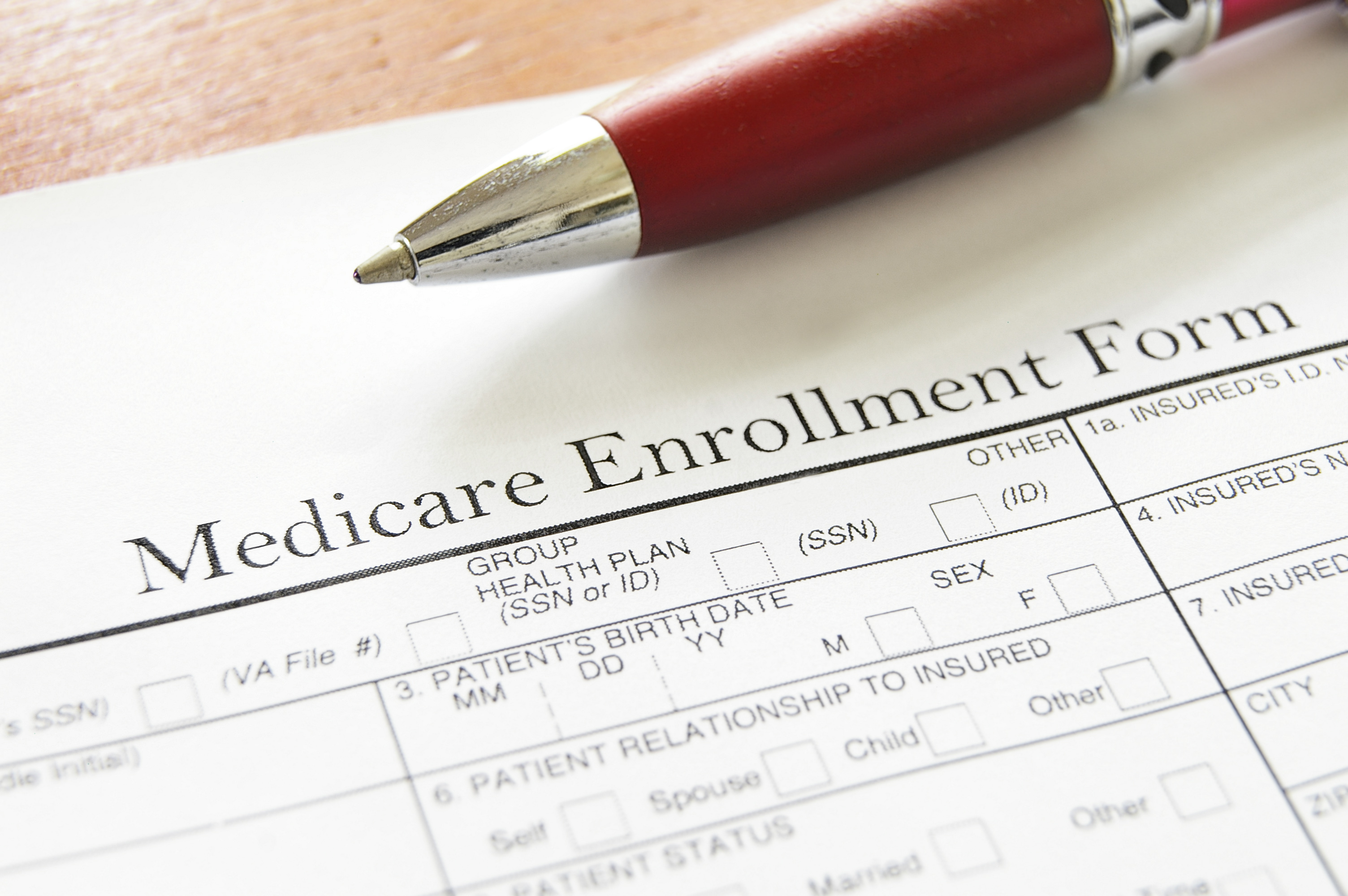5 Common Medicare Mistakes to Avoid
Here's how to keep your health-care costs down in retirement.

Profit and prosper with the best of Kiplinger's advice on investing, taxes, retirement, personal finance and much more. Delivered daily. Enter your email in the box and click Sign Me Up.
You are now subscribed
Your newsletter sign-up was successful
Want to add more newsletters?

Delivered daily
Kiplinger Today
Profit and prosper with the best of Kiplinger's advice on investing, taxes, retirement, personal finance and much more delivered daily. Smart money moves start here.

Sent five days a week
Kiplinger A Step Ahead
Get practical help to make better financial decisions in your everyday life, from spending to savings on top deals.

Delivered daily
Kiplinger Closing Bell
Get today's biggest financial and investing headlines delivered to your inbox every day the U.S. stock market is open.

Sent twice a week
Kiplinger Adviser Intel
Financial pros across the country share best practices and fresh tactics to preserve and grow your wealth.

Delivered weekly
Kiplinger Tax Tips
Trim your federal and state tax bills with practical tax-planning and tax-cutting strategies.

Sent twice a week
Kiplinger Retirement Tips
Your twice-a-week guide to planning and enjoying a financially secure and richly rewarding retirement

Sent bimonthly.
Kiplinger Adviser Angle
Insights for advisers, wealth managers and other financial professionals.

Sent twice a week
Kiplinger Investing Weekly
Your twice-a-week roundup of promising stocks, funds, companies and industries you should consider, ones you should avoid, and why.

Sent weekly for six weeks
Kiplinger Invest for Retirement
Your step-by-step six-part series on how to invest for retirement, from devising a successful strategy to exactly which investments to choose.
Medicare will cover a significant portion of your health-care costs, but it’s not free. It’s complicated, too. Here are some common mistakes to avoid.
1. Failing to sign up for Medicare because you aren’t receiving Social Security benefits
If you're already receiving Social Security benefits, you'll automatically be enrolled in Medicare Part A and Part B when you turn 65. But if you’ve decided to postpone filing for Social Security until full retirement age or later, you'll need to sign up for Medicare. You have a seven-month window to sign up—from three months before your 65th birthday month to three months afterward. For most people, Part A is free, so there’s no reason to wait.
2. Missing the deadline to sign up after you leave your job
If you’re still working at age 65 and have health insurance coverage through your employer, you probably don't have to sign up for Medicare. That will allow you to avoid Part B premiums. But if you leave your job, you need to enroll within eight months. Otherwise, you may have to wait until the next enrollment period. That means you could go for several months without coverage. You may also get hit with the 10% lifetime late-enrollment penalty.
From just $107.88 $24.99 for Kiplinger Personal Finance
Become a smarter, better informed investor. Subscribe from just $107.88 $24.99, plus get up to 4 Special Issues

Sign up for Kiplinger’s Free Newsletters
Profit and prosper with the best of expert advice on investing, taxes, retirement, personal finance and more - straight to your e-mail.
Profit and prosper with the best of expert advice - straight to your e-mail.
3. Choosing the wrong Medigap policy
If you buy a so-called Medigap policy within six months of enrolling in Medicare Part B, you can get any plan in your area, even if you have a pre-existing medical condition. A private Medigap policy provides supplemental coverage to traditional Medicare. But if you try to switch plans after that, insurers in most states can reject you or charge more because of your health. For that reason, it's important to pick your plan carefully.
4. Assuming that your medical providers will always be covered by your Medicare Advantage plan
If you get your coverage through a private all-in-one Medicare Advantage plan, which covers both medical expenses and prescription drugs, you usually need to use the plan's network of doctors and hospitals to get the lowest co-payments. For that reason, it's important to make sure your doctors, hospitals and other providers are covered from year to year. You can switch Medicare Advantage plans during open enrollment each year from October 15 to December 7. You can compare out-of-pocket costs for the plans available in your area by using the Medicare Plan Finder at www.medicare.gov. After you've narrowed the list to a few plans, contact both the insurer and your doctor to make sure they'll be included in the network for the coming plan year.
5. Putting your Part D plan on autopilot
Open enrollment for the Medicare Part D prescription drug program also runs from October 15 to December 7, and that’s a good time to review all of your options. The cost and coverage can vary a lot from year to year. Watch out for an increase in premiums or your share of the cost. And if you've been prescribed new medications or a generic option for your drugs has become available, a different plan may now be a better deal for you.
This is just the start. See six more Medicare mistakes to avoid.
Profit and prosper with the best of Kiplinger's advice on investing, taxes, retirement, personal finance and much more. Delivered daily. Enter your email in the box and click Sign Me Up.

Block joined Kiplinger in June 2012 from USA Today, where she was a reporter and personal finance columnist for more than 15 years. Prior to that, she worked for the Akron Beacon-Journal and Dow Jones Newswires. In 1993, she was a Knight-Bagehot fellow in economics and business journalism at the Columbia University Graduate School of Journalism. She has a BA in communications from Bethany College in Bethany, W.Va.
-
 Dow Loses 821 Points to Open Nvidia Week: Stock Market Today
Dow Loses 821 Points to Open Nvidia Week: Stock Market TodayU.S. stock market indexes reflect global uncertainty about artificial intelligence and Trump administration trade policy.
-
 Nvidia Earnings: Live Updates and Commentary February 2026
Nvidia Earnings: Live Updates and Commentary February 2026Nvidia's earnings event is just days away and Wall Street's attention is zeroed in on the AI bellwether's fourth-quarter results.
-
 I Thought My Retirement Was Set — Until I Answered These 3 Questions
I Thought My Retirement Was Set — Until I Answered These 3 QuestionsI'm a retirement writer. Three deceptively simple questions helped me focus my retirement and life priorities.
-
 What Does Medicare Not Cover? Eight Things You Should Know
What Does Medicare Not Cover? Eight Things You Should KnowMedicare Part A and Part B leave gaps in your healthcare coverage. But Medicare Advantage has problems, too.
-
 Medicare or Medicare Advantage: Which Is Right for You?
Medicare or Medicare Advantage: Which Is Right for You?From overall costs to availability of care, here's what to know about the differences between traditional Medicare and Medicare Advantage plans.
-
 Is a Medicare Advantage Plan Right for You?
Is a Medicare Advantage Plan Right for You?Medicare Advantage plans can provide additional benefits beneficiaries can't get through original Medicare for no or a low monthly premium. But there are downsides to this insurance too.
-
 Medicare Advantage 2024 Plans Dip in Ratings
Medicare Advantage 2024 Plans Dip in RatingsMedicare Advantage and Medicare Part D plans lose 'star' on the CMS performance score card.
-
 Should You Rent in Retirement?
Should You Rent in Retirement?Making Your Money Last Renting isn't right for all retirees, but it does offer flexibility, and it frees up cash.
-
 Considering a Medicare Advantage Plan? Be Wary of Promises
Considering a Medicare Advantage Plan? Be Wary of PromisesThese private insurance alternatives to Medicare are growing in popularity at the same time they’re under scrutiny for their sales tactics and coverage.
-
 Medicare Open Enrollment Occurs Annually from October to December — Here's What You Need to Know
Medicare Open Enrollment Occurs Annually from October to December — Here's What You Need to KnowMedicare open enrollment is underway. Here's what you need to get done.
-
 Medicare Costs to Go Down in 2023
Medicare Costs to Go Down in 2023Retirement Lower-than-expected spending on an expensive drug and other things means beneficiaries will pay less next year.